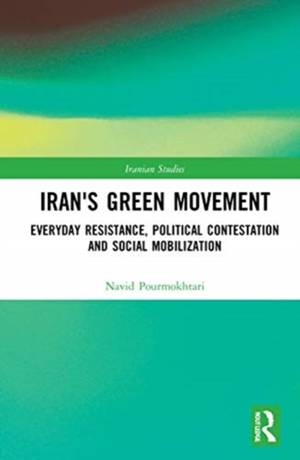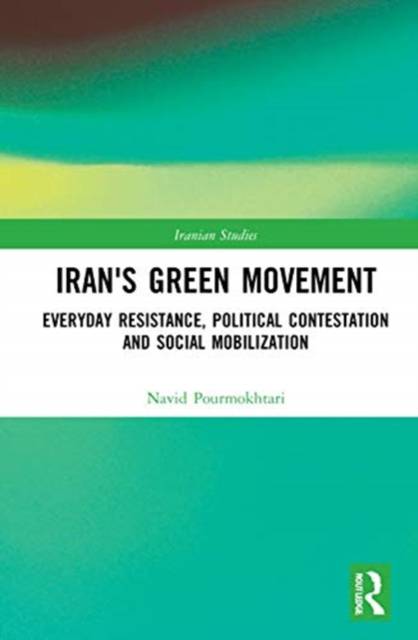
- Retrait gratuit dans votre magasin Club
- 7.000.000 titres dans notre catalogue
- Payer en toute sécurité
- Toujours un magasin près de chez vous
- Retrait gratuit dans votre magasin Club
- 7.000.0000 titres dans notre catalogue
- Payer en toute sécurité
- Toujours un magasin près de chez vous
Iran's Green Movement
Everyday Resistance, Political Contestation and Social Mobilization
Navid PourmokhtariDescription
This book examines the emergence and development of the 2009 Green Movement in Iran. The approach emphasizes the context and the local and historical specificities in which mass oppositional movements arise, develop and conduct their operations. Meanwhile, it foregrounds an account of multiple modernities that work to transcend modernist assumptions.
The volume describes and analyzes the power modalities--disciplinary, biopolitical, and sovereign--employed by the Islamic Republic to governmentalize the masses. Bearing a triangular methodology, the book consists of six semi-structured interviews with authorities and activists who participated in the pivotal events of that period; discourse analysis focusing on the Iranian constitution and the relevant government policy documents and speeches; and archival analysis. These provide the historical background, perspectives and insights required to analyze and explicate the conditions responsible for the emergence of the Green Movement and to grasp how collective action was enabled and organized.
Marking a particular historical phase in the development of a home-grown democracy in post-revolutionary Iran, the Green Movement is transforming the country's political landscape. This book is a key resource to students and scholars interested in comparative politics, Iranian studies and the Middle East.
Spécifications
Parties prenantes
- Auteur(s) :
- Editeur:
Contenu
- Nombre de pages :
- 228
- Langue:
- Anglais
- Collection :
Caractéristiques
- EAN:
- 9780367744458
- Date de parution :
- 27-05-21
- Format:
- Livre relié
- Format numérique:
- Genaaid
- Dimensions :
- 156 mm x 234 mm
- Poids :
- 512 g

Les avis
Nous publions uniquement les avis qui respectent les conditions requises. Consultez nos conditions pour les avis.






